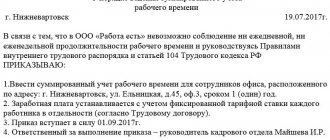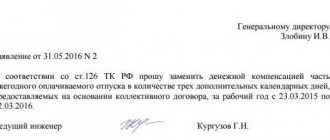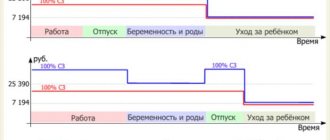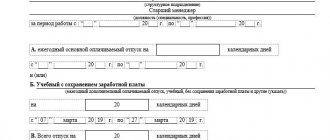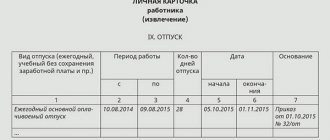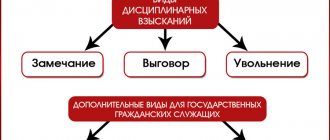Currently, there is no general universal definition of vacation in Russian legislation. This is due to the multifunctional nature of this phenomenon, the difference in the legal status of subjects who have the right to receive it, and the difference in the grounds and procedure for its provision.
Thus, it cannot be said that vacation is a phenomenon inherent exclusively in labor relations. Education legislation provides for the possibility of granting academic leave to students of professional educational institutions; Lawyers, notaries, military personnel, as well as persons undergoing military service upon conscription have the right to leave; Persons serving criminal sentences are not deprived of this right.
types of vacations
Vacations can have different purposes: some involve the exercise of the right to rest; others pursue the goal of restoring the employee’s health; others are aimed at carrying out state or public duties, others are provided for child care, etc.
Leaves include paid and unpaid, long-term and short-term, mandatory and optional to be provided by the employer, etc.
The features that unite all types of leave are an inextricable connection with professional activity, the enshrinement of the right to leave and the rules for its provision in the relevant regulations, exemption from work duties for several days in a row, and preservation of the place of work (position) for the entire specified period.
Can this type of rest time, such as vacation, last only one day?
Vacation has one feature that distinguishes it from all other types of rest time - its duration. Traditionally, in the science of labor law, vacations are defined as “time of continuous rest for several days in a row.” Today, from a formal legal point of view, the legislation does not have a legal definition of vacation as a long period of time; The minimum duration of unpaid leave is also not established by law. From this we can conclude that at present there are no rules in domestic labor law that directly or indirectly prohibit the use of short-term (one-, two-, three-day) leave in such cases.
Conditions for granting study leave
In accordance with Ch. 26 of the Labor Code of the Russian Federation, the employer is obliged to provide persons combining work with education with additional educational leave. This obligation arises regardless of whether the employee himself expressed a desire to study or whether he was sent for training by the employer.
Vacations can be either paid or unpaid - this is influenced by the employee’s form of education (full-time, part-time or part-time). Basically, if an employee is studying full-time, the leave is not paid, but if it is part-time or part-time, it is paid.
However, the employer does not have the obligation to provide study leave to all students studying without exception, since the legislator has established certain conditions for this.
At the same time, study leave is granted not only to employees who are receiving education for the first time, but also to those who already have a professional education at the appropriate level and who are sent to receive education by the employer under an employment or student agreement concluded in writing (Part 1 of Article 177 of the Labor Code of the Russian Federation).



